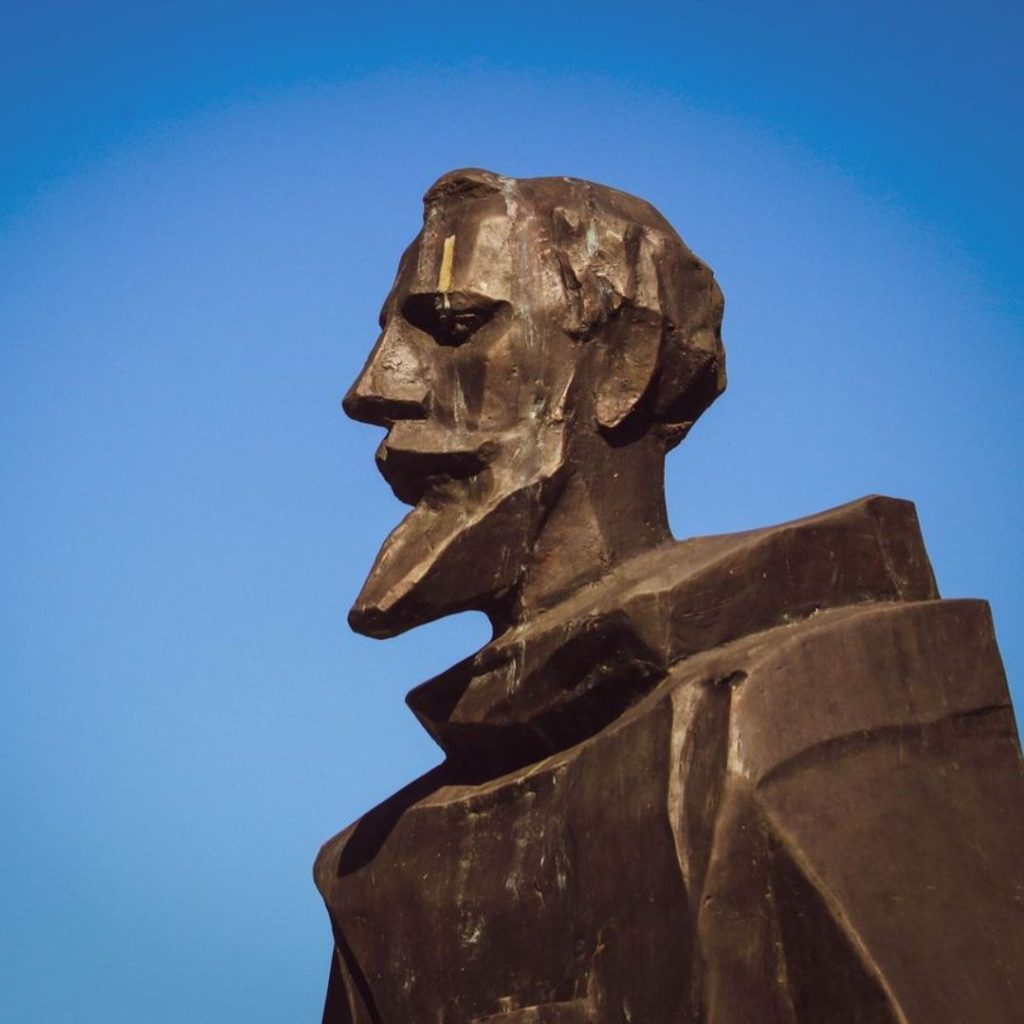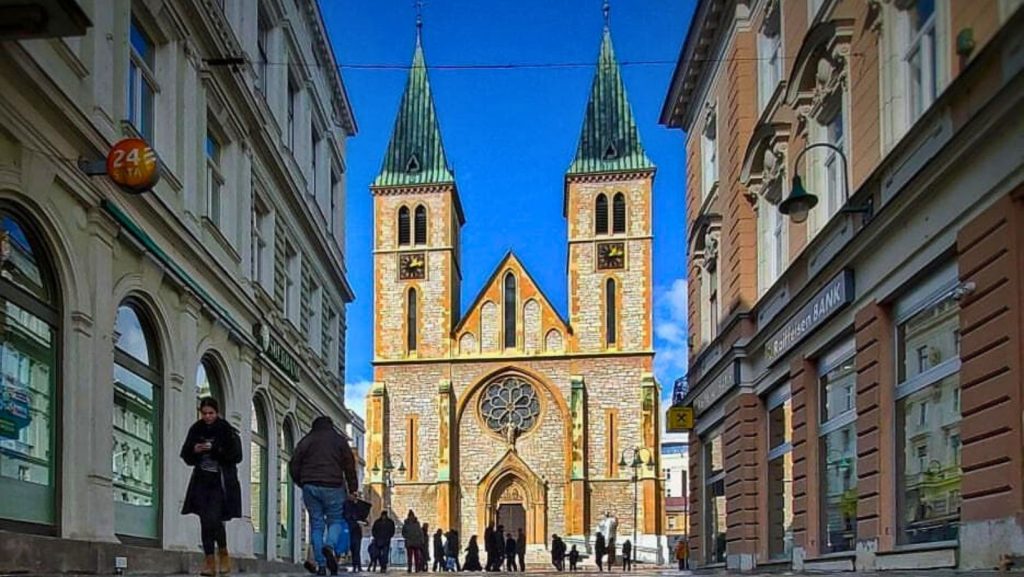
Discover the rich history and cultural heritage of Fojnica at the Franciscan Monastery & Church of the Holy Spirit. Originally built in the late 14th century and rebuilt in 1594-98, the monastery has been a spiritual and cultural center for centuries.
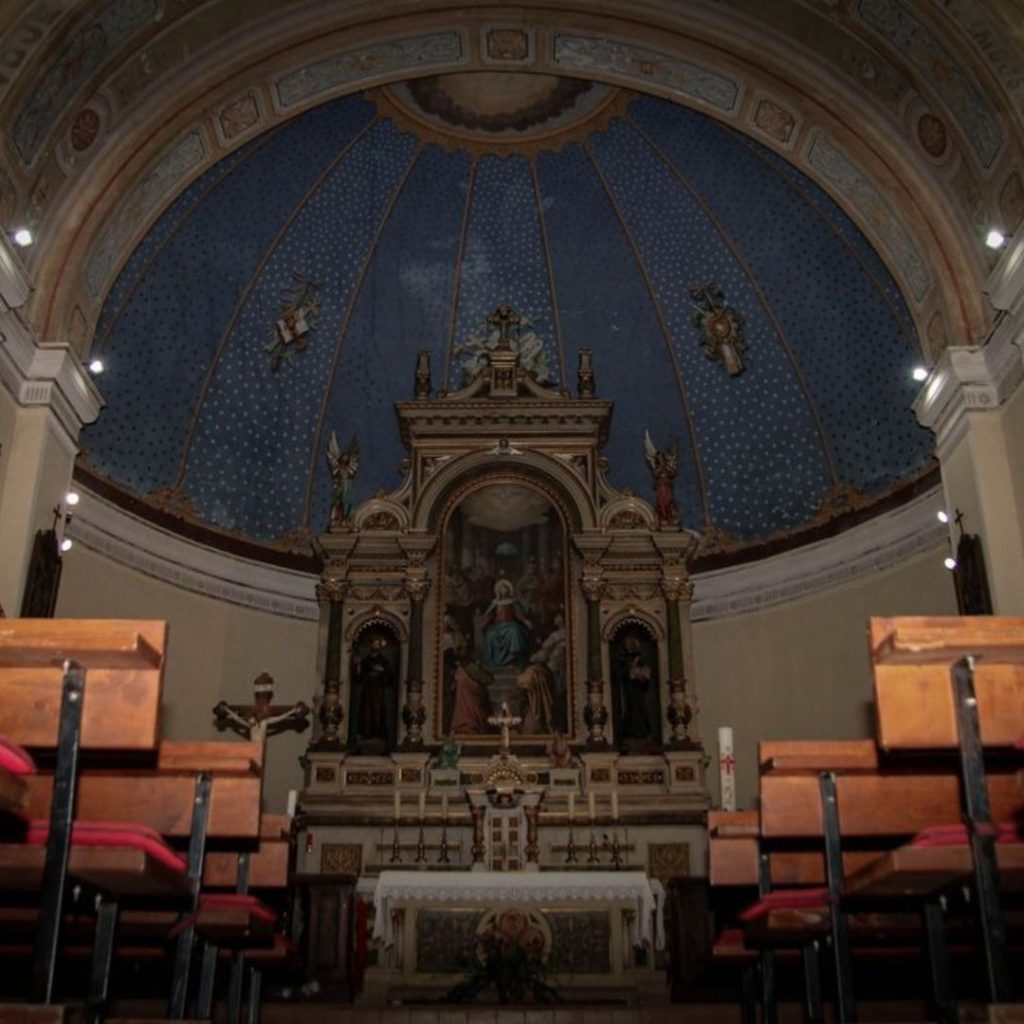
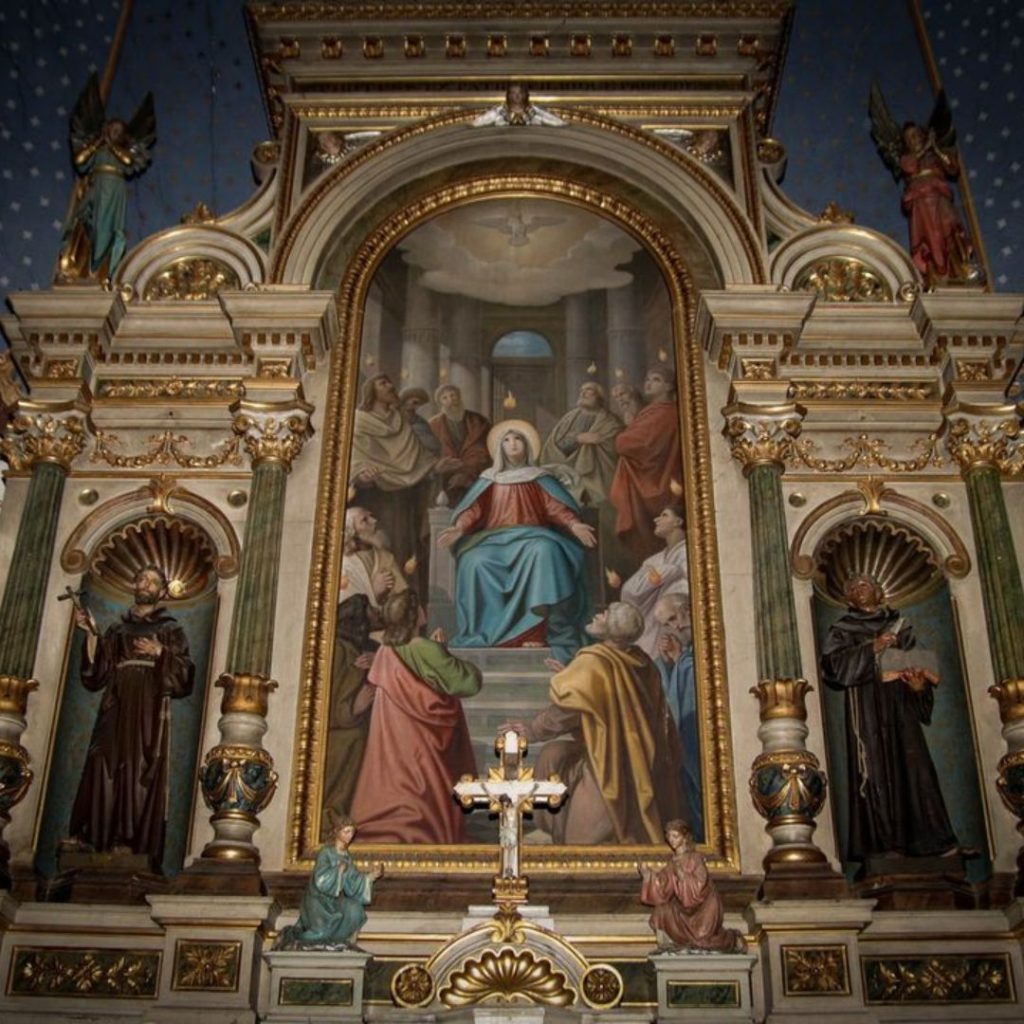
The present-day church, designed by architect Josip Vancaš in a neo-Renaissance style, was constructed in 1888.
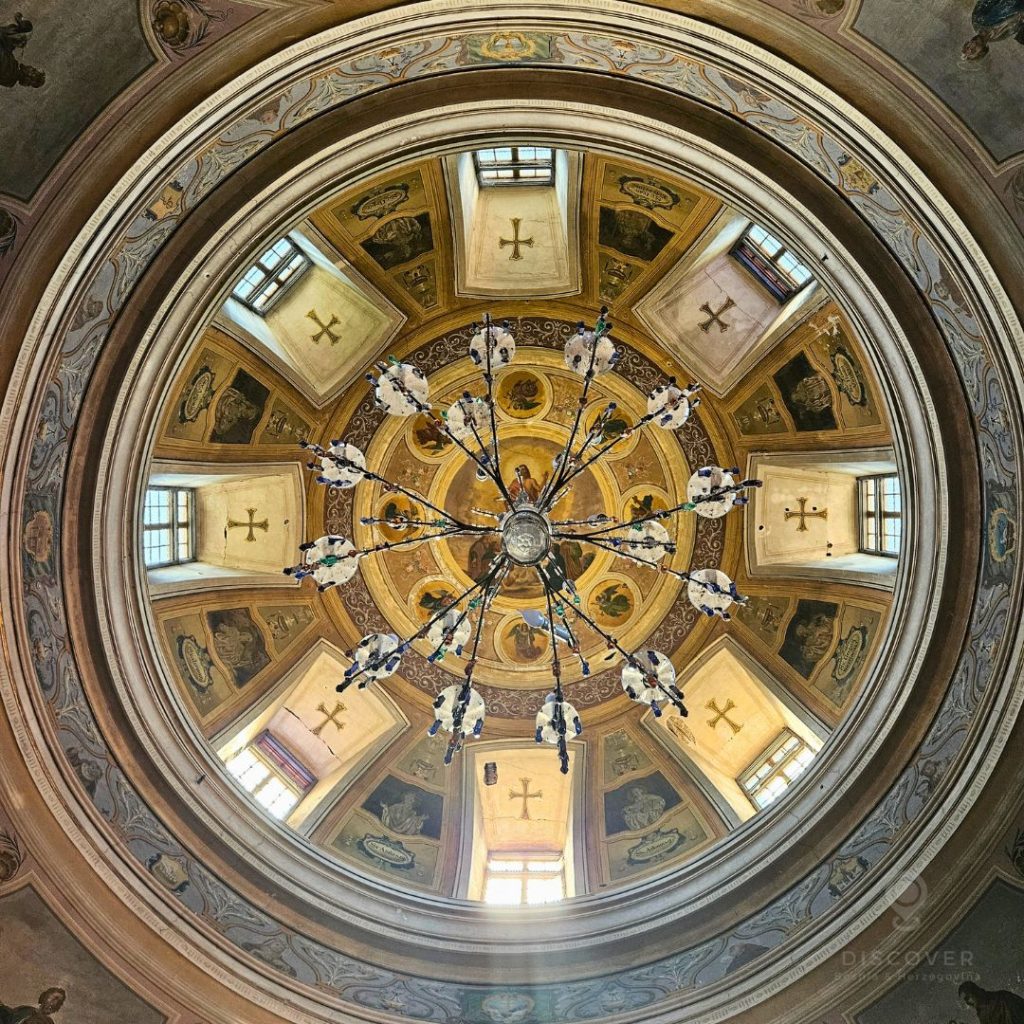
Its interior, adorned with paintings by Josip Oisner from the late 19th century, adds to its artistic charm.
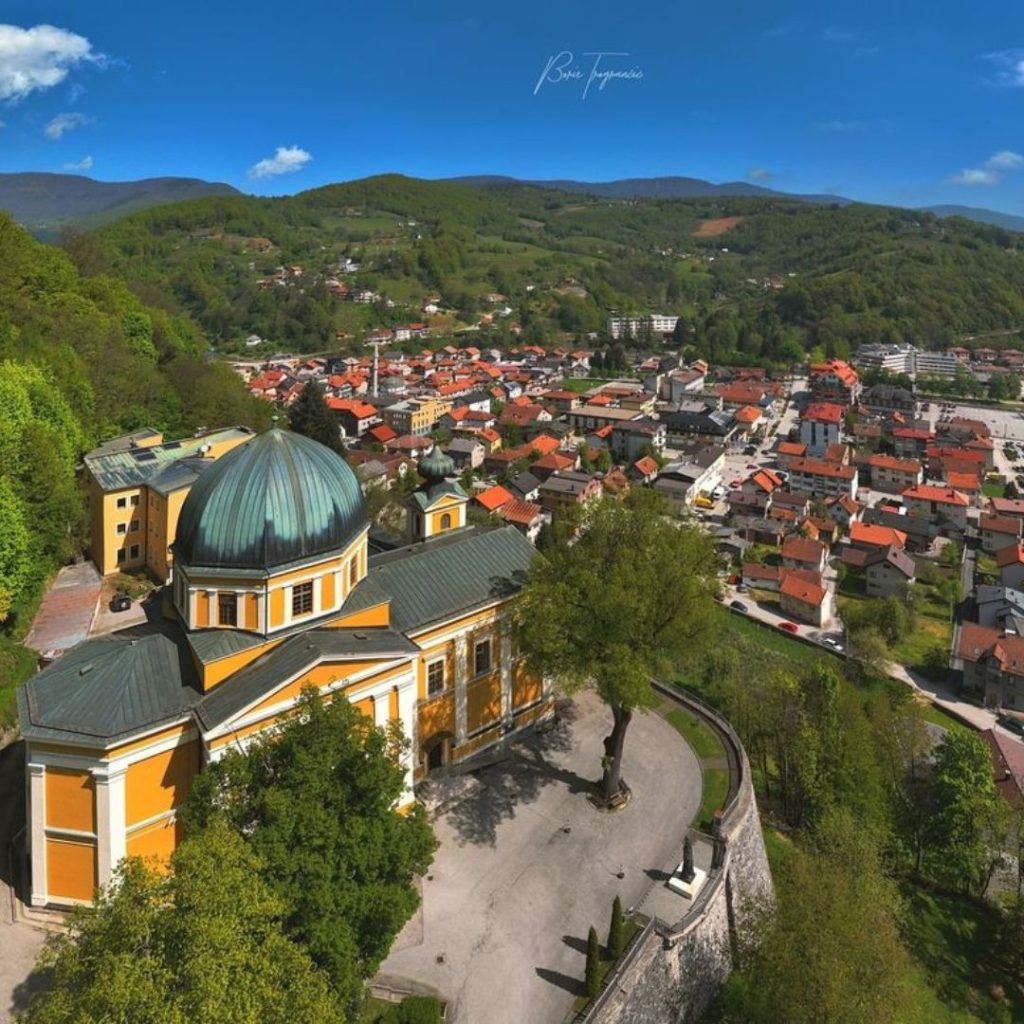
Its prominent location offers breathtaking views from all over the town.
Monastery Museum
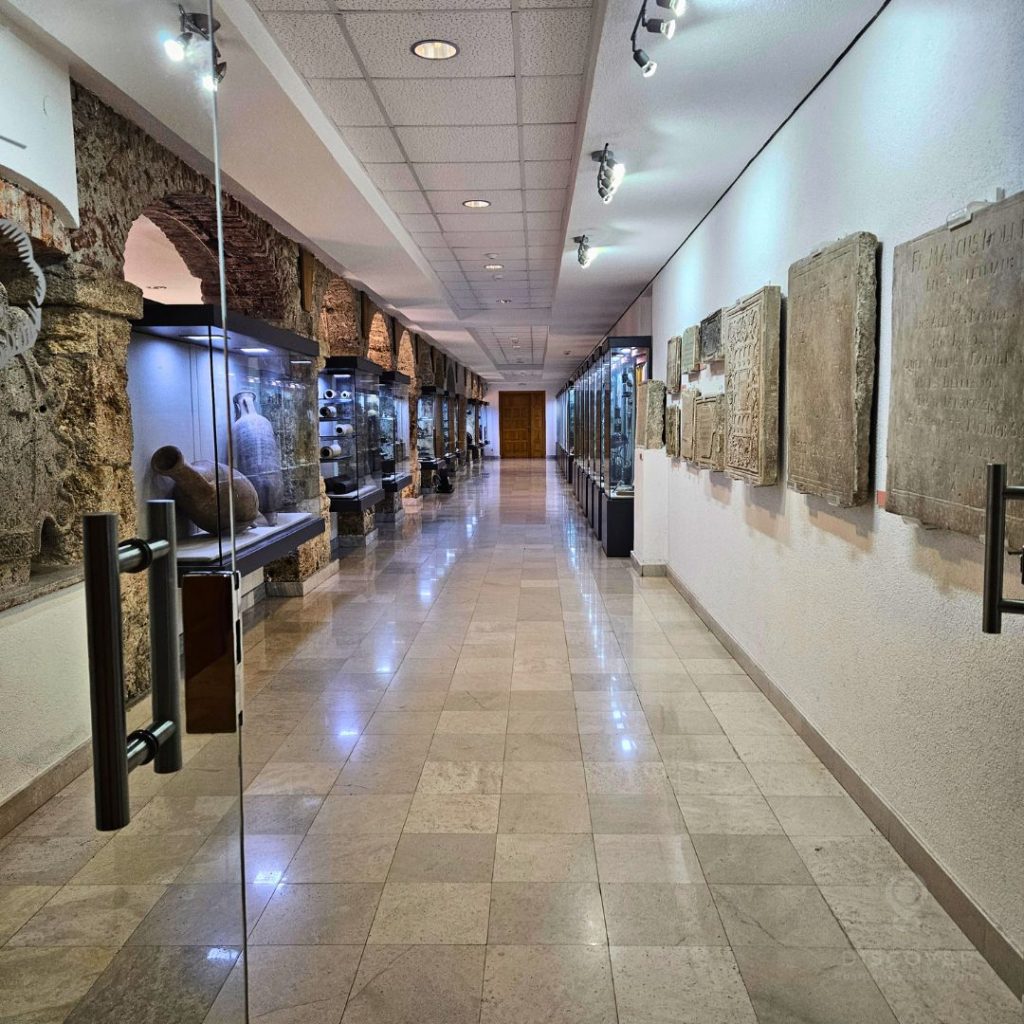
Explore artefacts that showcase Fojnica’s past, from folk costumes and tools to a unique collection of cold-steel weapons and mining tools.
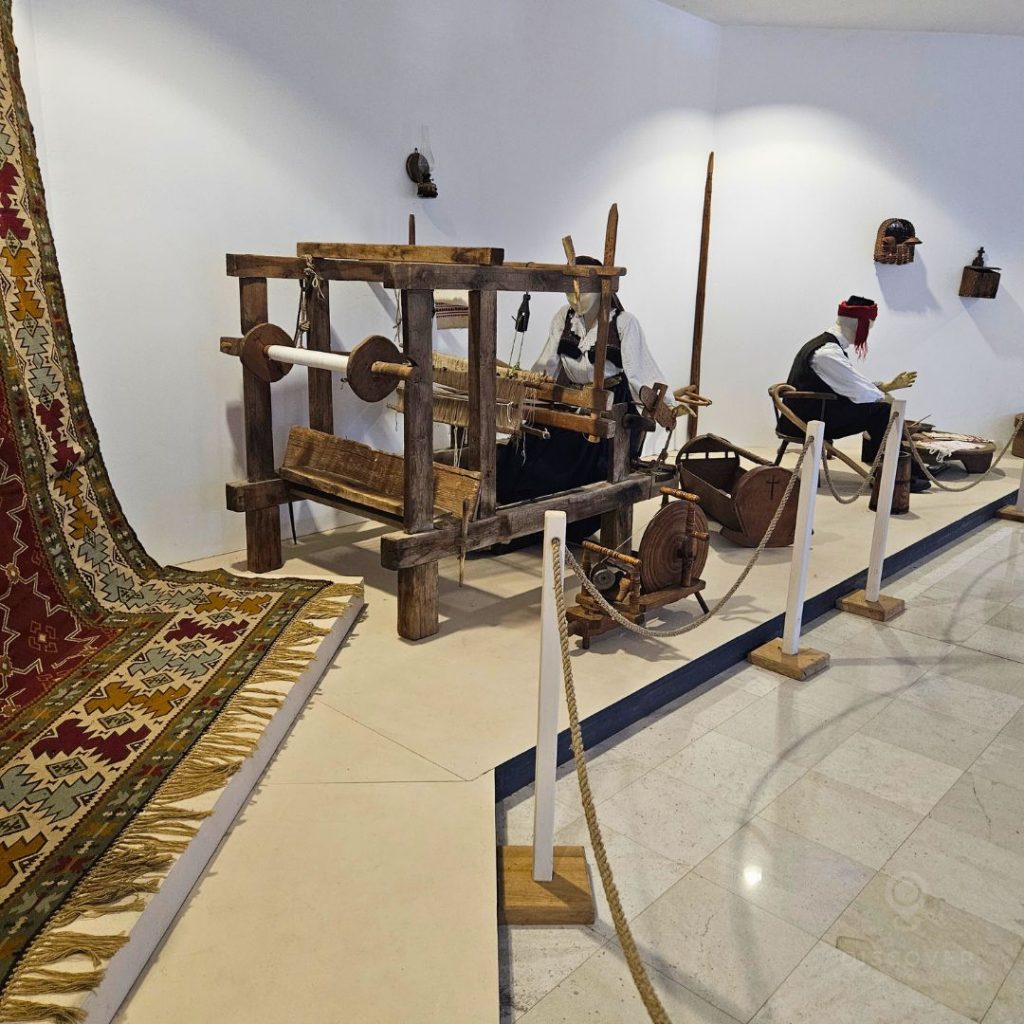
Library
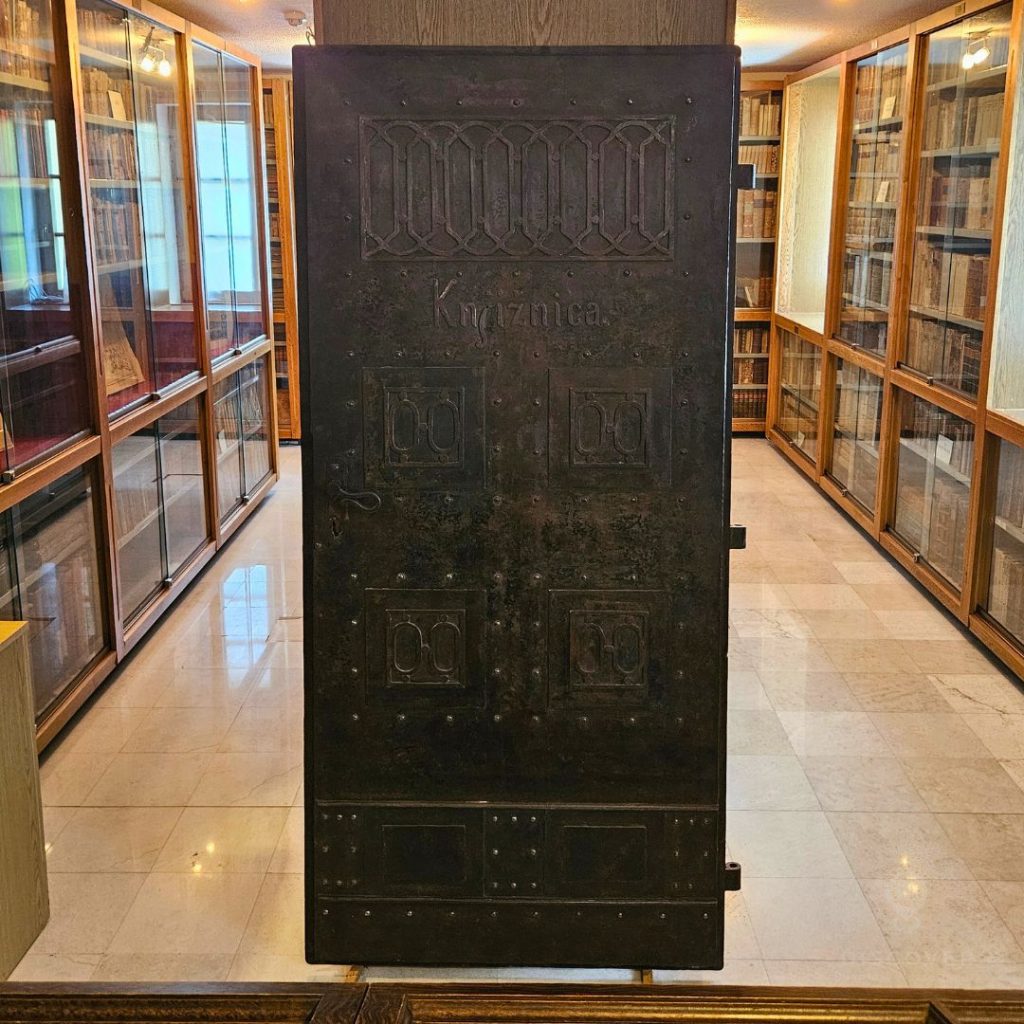
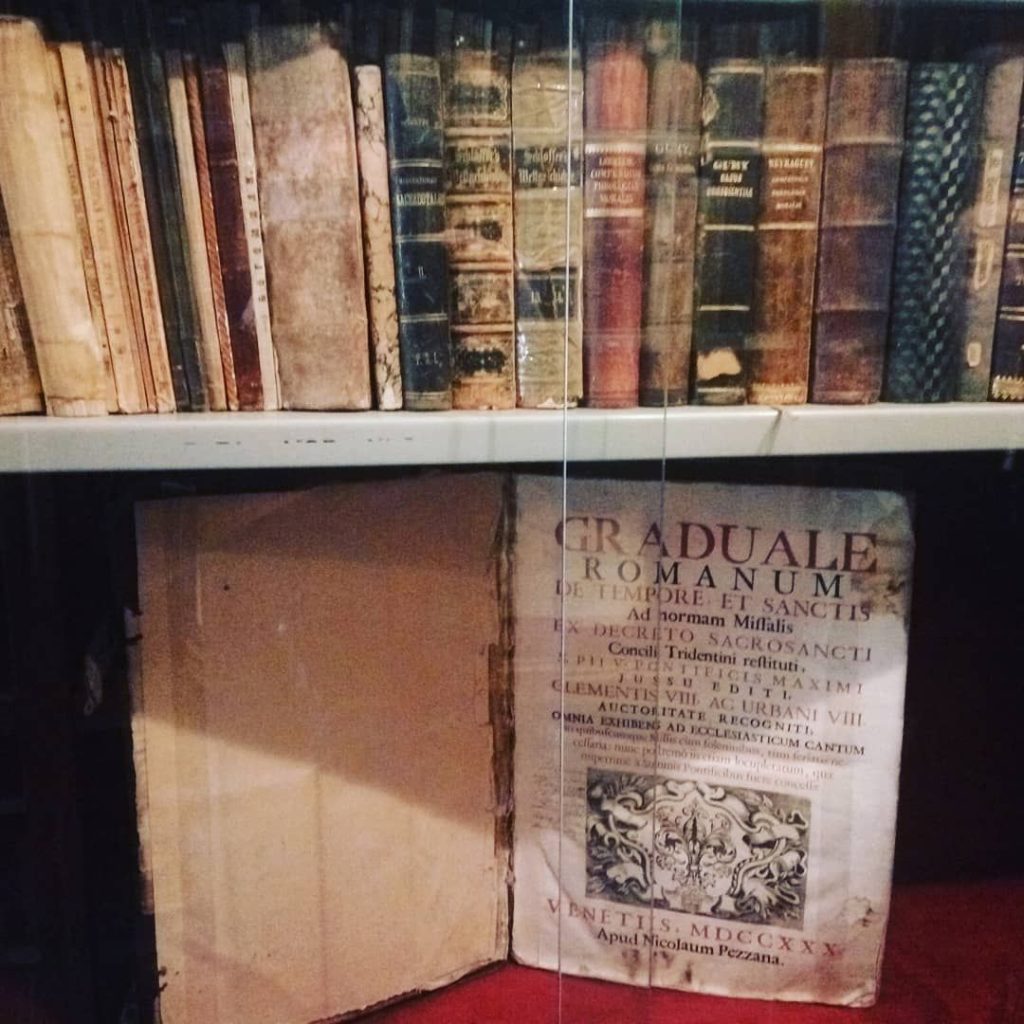
Home to rare books and manuscripts, including thirteen incunabulae and a variety of works from the 16th to 19th centuries.
Archives
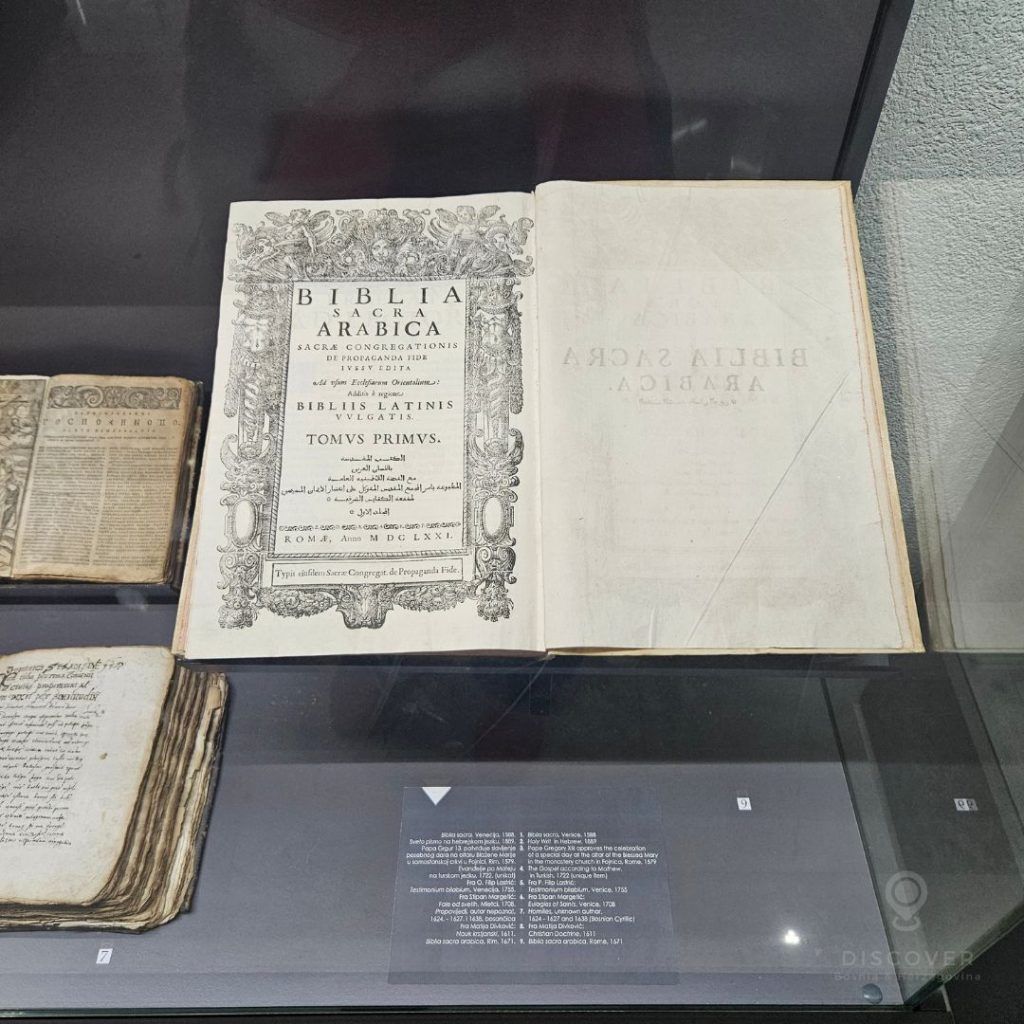
Discover historical documents, including Turkish scripts, Bosnian Cyrillic documents, and the Fojnica Roll of Arms.
Art Gallery
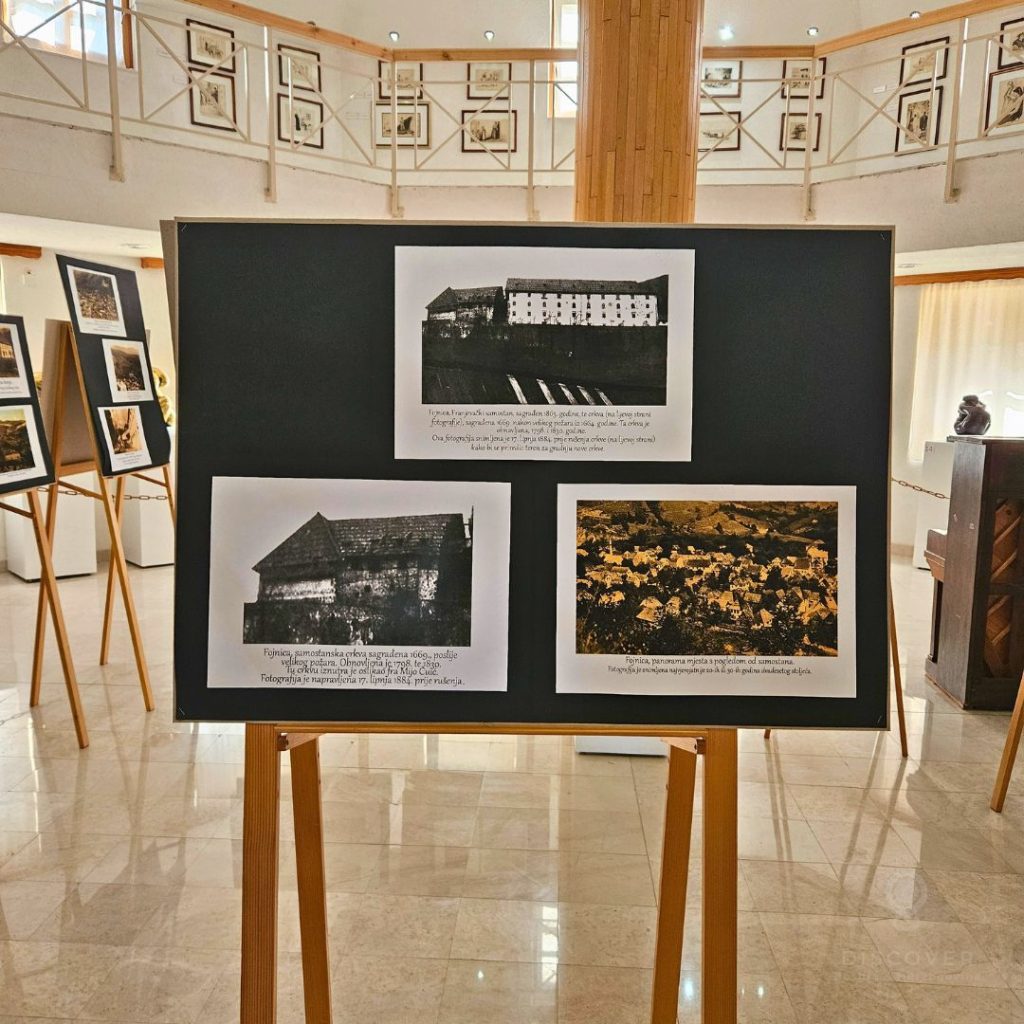
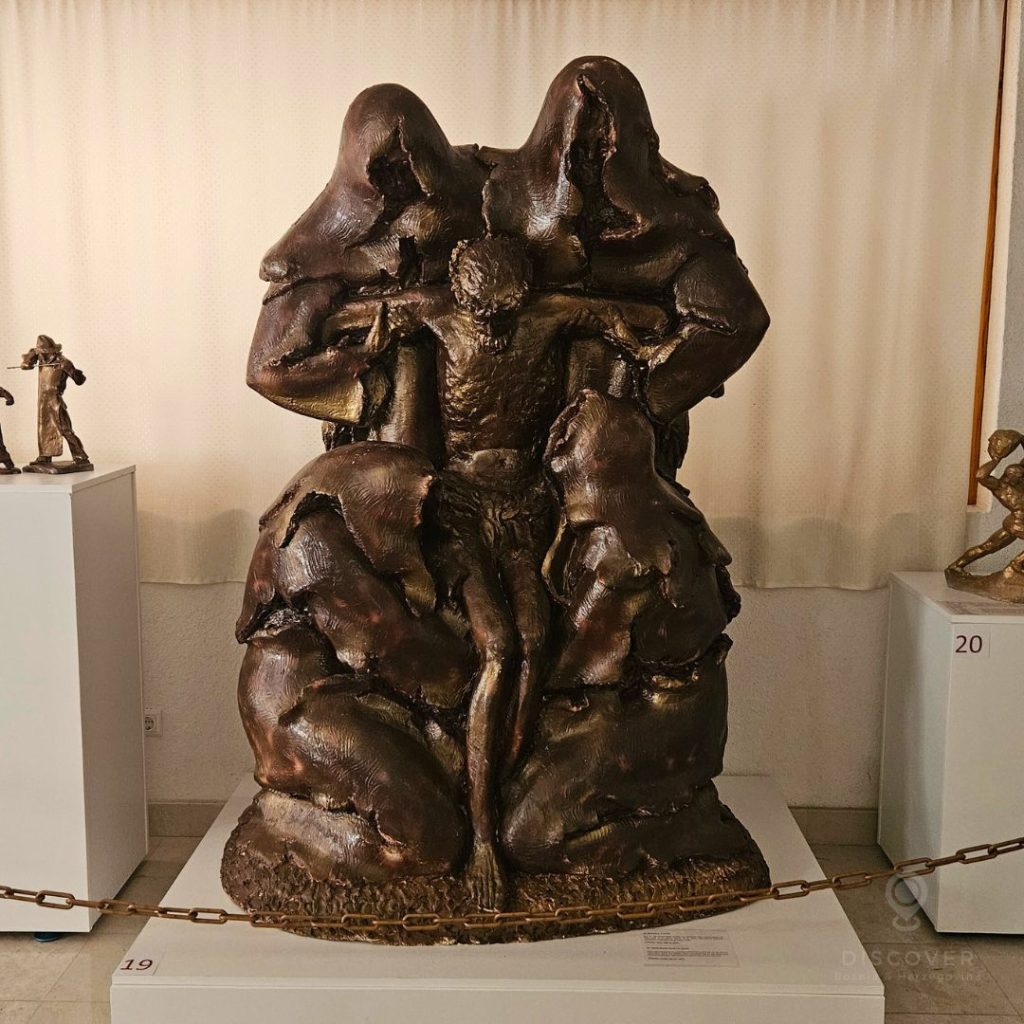
Admire 18th and 19th-century oil paintings, including works by Baroque artists and local painters like Fra Miho Čuić.
Treasury
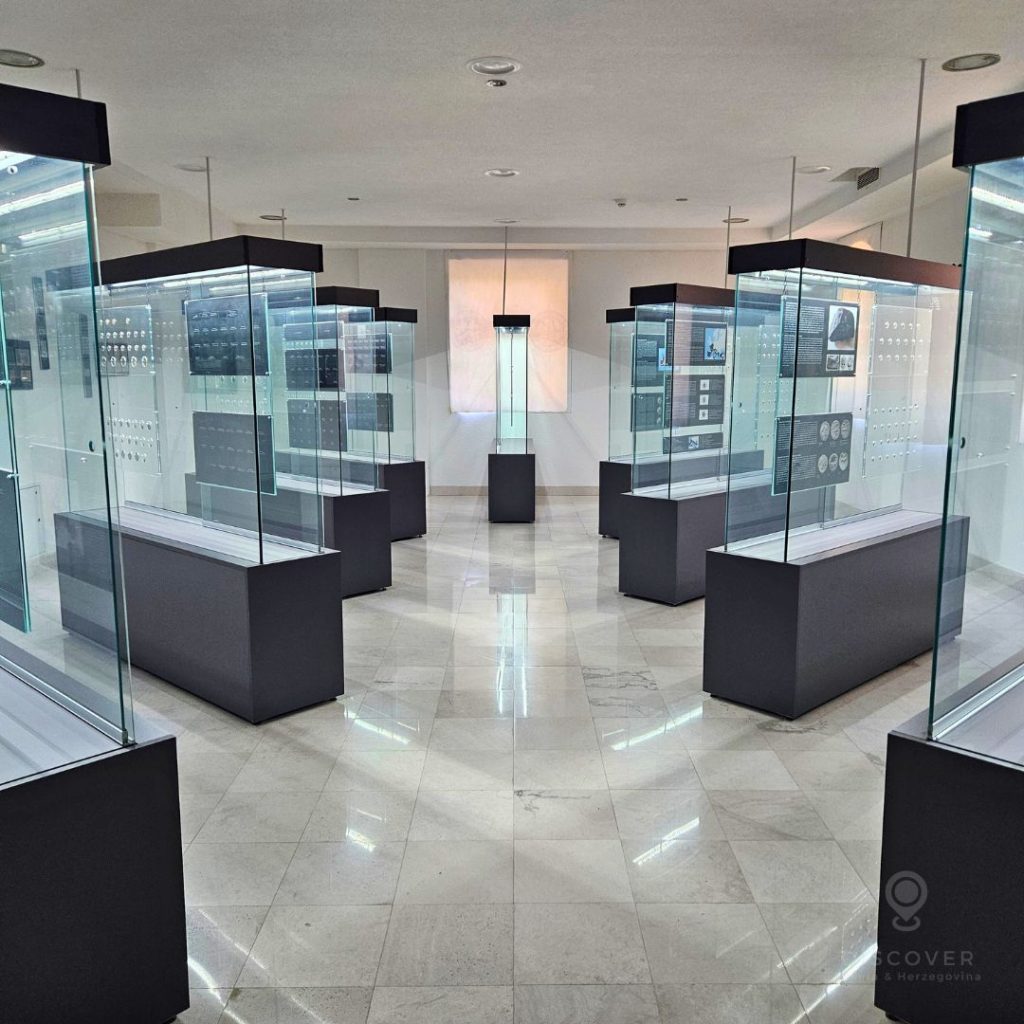
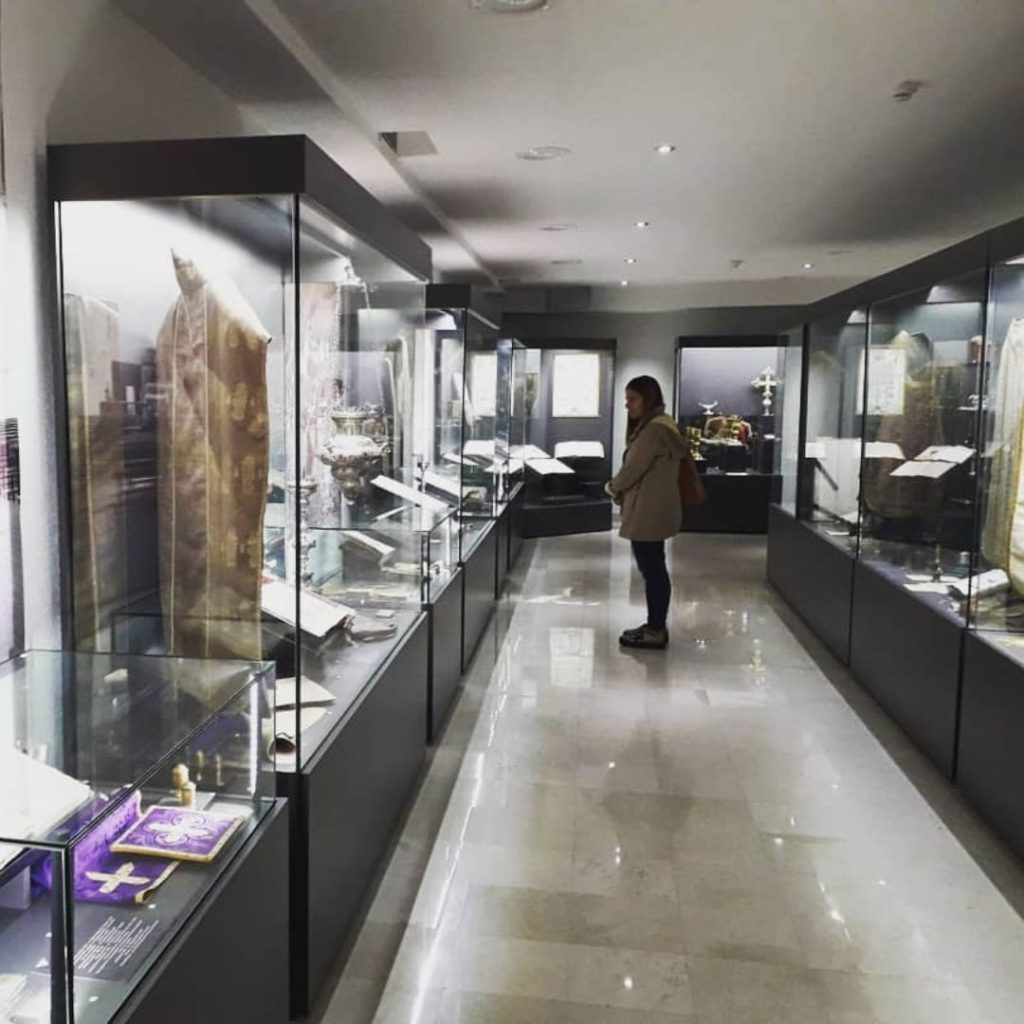
View a stunning collection of church plate, textiles, and a 15th-century silver bowl crafted in a Bosnian goldsmith’s workshop.
Fojnica’s Ahdnama
The monastery is associated with Friar Anđeo Zvizdović, who received a historical document – ahdnama from Sultan Mehmed II the Conqueror, granting religious freedom to Bosnian friars.
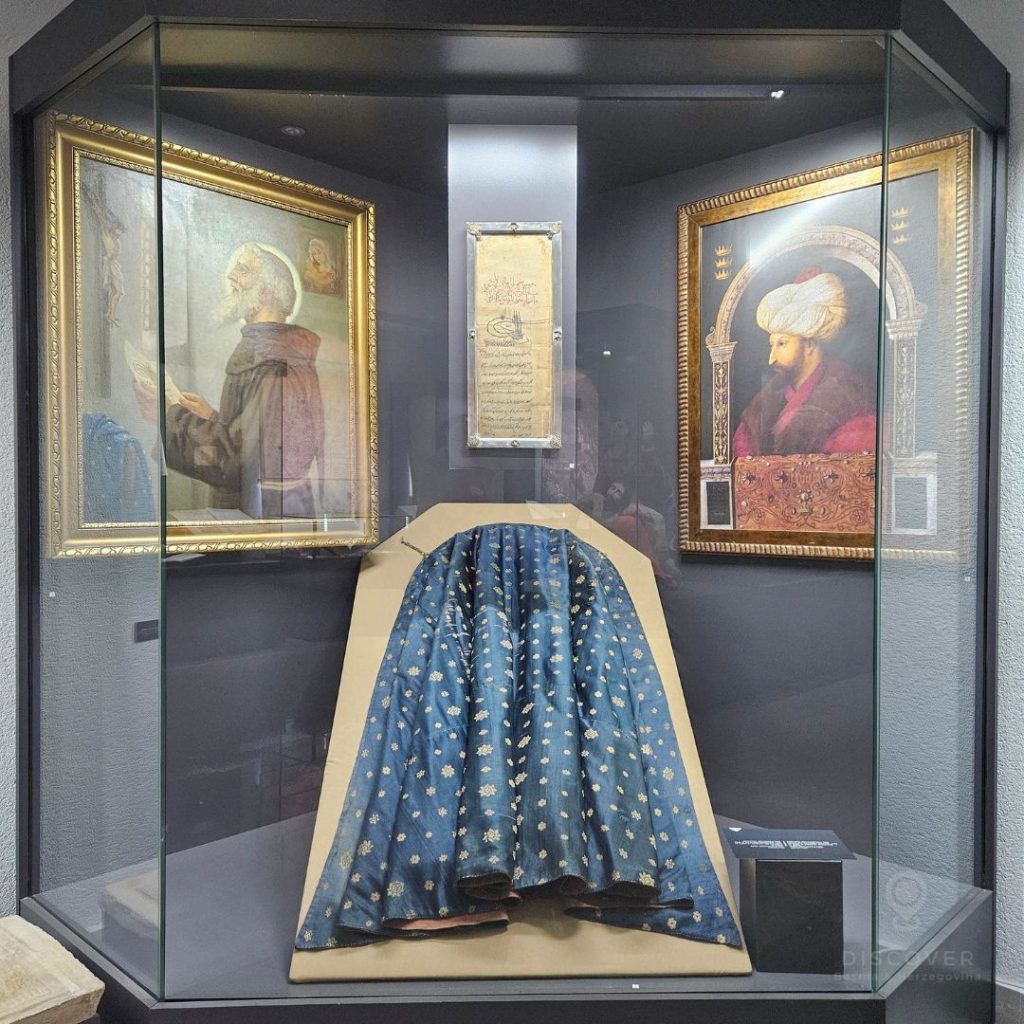
the Ahdnama, in which the Sultan offered his safeguard to the Catholics and guaranteed the safe return of those who had fled. This document is celebrated as one of the earliest records of human rights in history, even predating the Medina Charter of 623 AD. Remarkably, the Ahdnama was created 485 years before the international declaration of human rights in 1948. It stands as a testament to the principles of freedom and tolerance.
